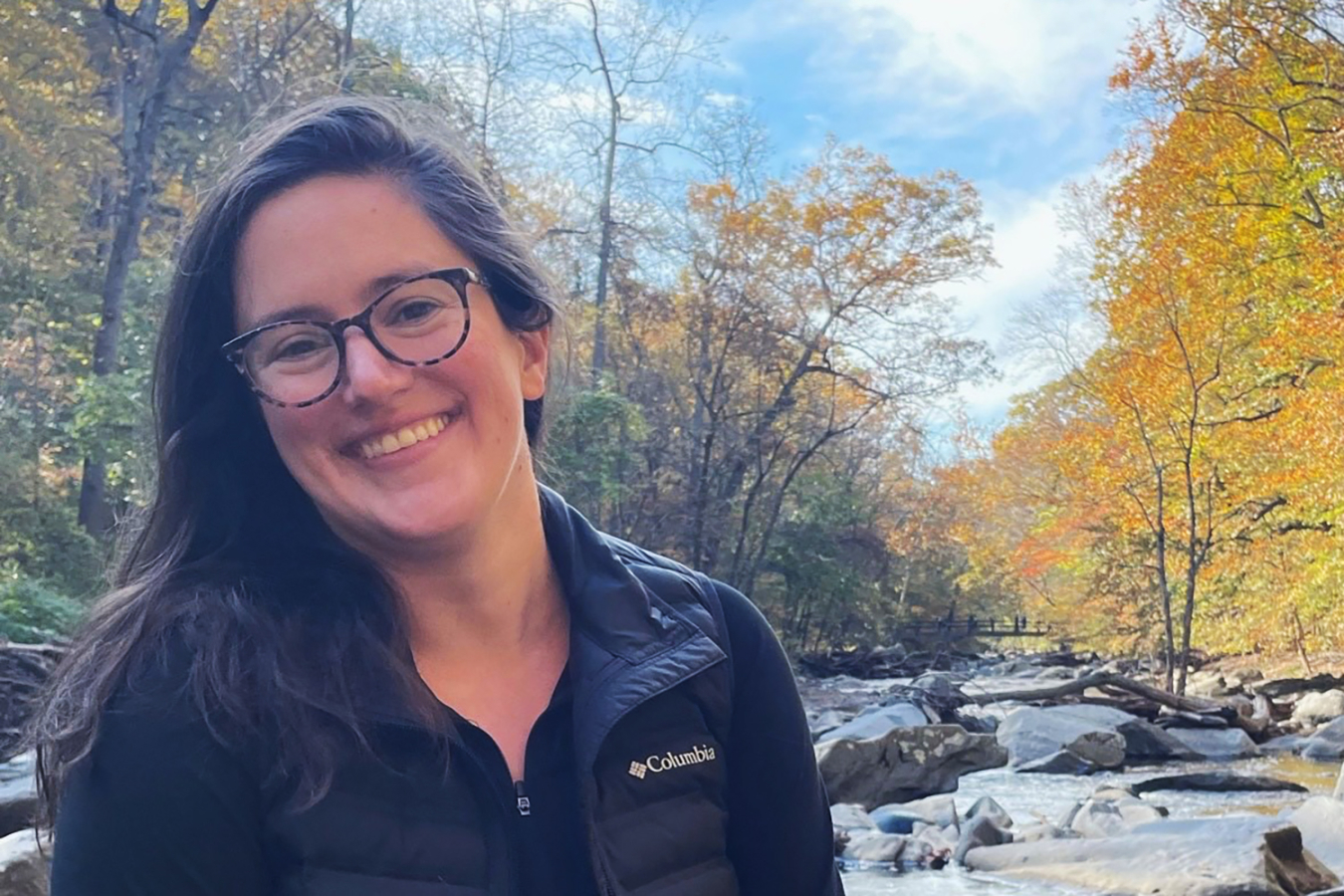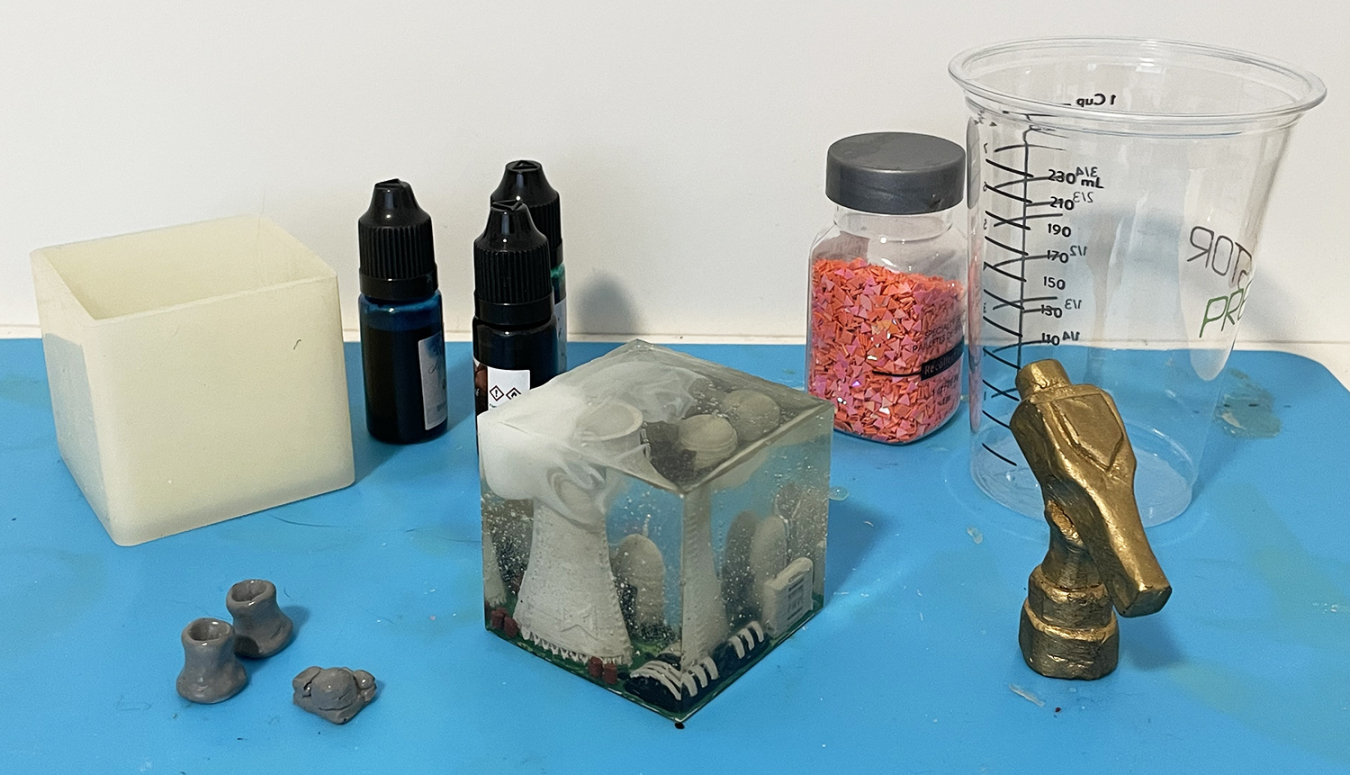Meet Kyle Pilutti, a self-described nuclear nerd. When she's not supporting #NNSA's #nonproliferation leaders, or serving as a point person on the office's issues in Asia, she can often be found at home building nuclear-themed crafts.
National Nuclear Security Administration
June 21, 2023
How do you support NNSA?
I work in the office of the Deputy Administrator for the NNSA’s Office of Defense Nuclear Nonproliferation. I help our Deputy Administrator in the day-to-day needs of our office and serve as a regional advisor for Oceania and parts of Asia.
What was your personal and academic background and how has that shaped you? What led you to a career in nuclear security?
I studied Arabic during my undergraduate and graduate studies and had a desire to work in U.S. foreign policy, but it wasn’t until I was at the Middlebury Institute of International Studies at Monterey that I developed my interest in nuclear nonproliferation. Through my graduate studies and internship opportunities at the International Atomic Energy Agency and Lawrence Livermore National Laboratory, I knew I wanted to focus my career on nonproliferation policy. That led me to NNSA.
There is nothing more comforting than knowing that you are happy with who you are, who you are with, and how you express that. Something that surprised me, though, is how you don’t have to just come out once. Due to how the world is, it’s a never-ending process.
What is the best part about your job?
Meeting and engaging with all the wonderful and fascinating people across the globe involved in nonproliferation issues. I love getting to interact with people from so many different cultures, religions, and backgrounds who all picked this rather niche (and kind of nerdy) subject to work in.
What advice would you have for anyone interested in a career in nuclear security?
Reach out to people in this field and ask all of the questions. So many of us are excited to share what we do and help those interested in the field. It’s an incredibly supportive and welcoming cohort of nuclear professionals – you just need to ask.
Tell us a little about finding your identity as a member of the LGBTQ+ community. How do you feel your experience has changed with time?
It has changed over time, both through personal realizations as well as by the areas where I lived. There is nothing more comforting than knowing that you are happy with who you are, who you are with, and how you express that. Something that surprised me, though, is how you don’t have to just come out once. Due to how the world is, it’s a never-ending process. Working in this, particularly with regard to the the security and the international aspects, I have to decide when, how, and if I want to “out” myself on a regular basis. I think the thing that has changed over time is my comfort level with that process. It does get easier over time.

What does Pride mean to you?
Pride is about community and public representation for that community. I have been fortunate enough to live in many places that are generally welcoming. But that does not necessarily mean that everyday life has clear reminders that LGBTQ+ community members are a part of it. So having a month dedicated to members of the community – who are encouraged to celebrate and be visible – is quite powerful. I hope that the comfort and presence continues to have an impact for the rest of the year, encouraging more visible integration into everyday life.
Why do you think diversity and inclusion is important in the workplace? Why is it important to your profession?
It fosters a healthy atmosphere. Diversity and inclusion span a large number of categories both visible and not. Everyone benefits from a workplace that is clearly welcoming. Making sure everyone feels comfortable and included is both good for basic human decency but also helps facilitate productivity and innovation.
The nuclear security field that requires a lot of different types of experience, perspectives, and opinions to be as effective as possible. In addition to the heathy work environment benefits of being inclusive, having diversity and a culture of acceptance can help bring in and foster those different characteristics that bring creative and innovative solutions to the table.
Tell us something interesting about yourself; what do you like to do for fun/downtime?
I enjoy merging my nerdy interests with my artistic background, resulting in a variety of different nuclear-themed crafts such as epoxy nuclear power plants and nuclear pun Valentine’s Day cards.

